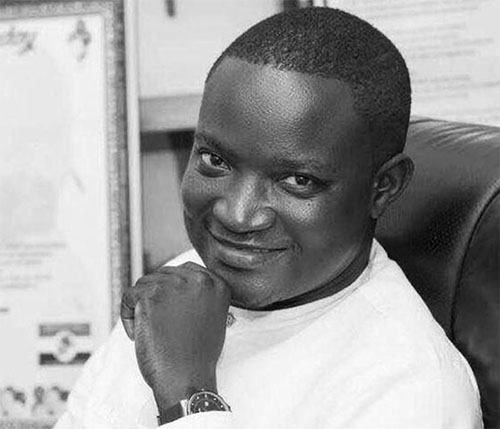Isaac Acheampong
YOUTH FOR Action, a group of passionate individuals, have registered their displeasure over the sacking of some young people who, by no fault of their own, have been rendered jobless due to the insensitive nature of the John Mahama administration.
In a statement signed by its convener, Isaac Acheampong, the group shared their solidarity with the victims, indicating that they have aligned with labour unions, civil society organisations, other well-meaning Ghanaians, the New Patriotic Party (NPP), as well as the Minority in Parliament, in condemning such acts.
Mr. Acheampong mentioned that the current government, while in opposition, launched its Youth Manifesto, in which several lofty promises were made to the youth of this country. Notable among these promises was the establishment of a Young Entrepreneurs Microcredit Institution, with a seed fund of GH¢750 million to disburse affordable loans to young entrepreneurs. This promise can be found in paragraph (e) of the National Democratic Congress (NDC) Youth Manifesto under “Youth Entrepreneurship and Skills Development.”
In February 2025, Osman Abdulai Ayariga, the Chief Executive Officer of the National Youth Authority (NYA), reaffirmed this commitment, reiterating at the launch of the Youth and Women Business Policy Environment Reform (YWPER) Project that the government planned to provide flexible loans to young entrepreneurs to strengthen their businesses.
“Five months into the administration of John Mahama, and after presenting its first budget to Parliament, the government has gone completely silent on this major entrepreneurship initiative aimed at boosting youth-owned businesses.
“Instead, the government has sought to relaunch the NPP government’s YouStart initiative under the guise of the Adwumawura project—an attempt to confuse the public and renege on its promise of establishing Young Entrepreneurs Microcredit for the youth. The question we are asking today is simple: Mr. President, where is Young Entrepreneurs Microcredit, and where is the GH¢750 million? With due apologies to MTN, we ask, “Na sika no wɔ he?” (Where is the money?)” the statement read.
Utility Tariffs
Isaac Acheampong, in the statement, also lamented the recent increase in utility tariffs, stating that the NDC government, in April this year, announced increases of 14.75% and 4.02% in electricity and water tariffs, respectively, effective from May 3, 2025. This increment came at a time when public sector employees had received a meager 10% salary increase.
“For a government that promised a 24-hour economy anchored on industrialisation, and committed to implementing this policy through the provision of affordable electricity, it astonishes me that, less than five months into office, the John Mahama-led administration’s main preoccupation appears to be the impoverishment of Ghanaians through these utility hikes.
“The youth stand to suffer the most from these outrageous tariffs, as the artisanal economy, which employs a significant portion of the youth, relies heavily on affordable electricity,” he said.
Mr. Acheampong added that with this insensitive tariff hike, barbers, hairdressers, carpenters, cold store operators, iced water sellers, and others are bearing the brunt. He mentioned that youth employed in the formal industrial sector are also severely affected, as these tariff increases often lead to job cuts by industries attempting to offset operational costs.
“This tariff hike comes at a time when students in tertiary institutions are being threatened with the responsibility of paying for their utilities. Added to this burden are the thousands of young people who have been rendered jobless through the reckless termination of their employment. From public sector workers to private employees, artisans to students, the youth across all sectors of the economy have become the primary victims of this insensitive government, one that has yet to create a single job to alleviate the hardship Ghanaian youth are enduring,” he added.
Mr. Acheampong said the government’s response to this insensitive tariff hike has been to blame it on Ghana’s International Monetary Fund (IMF) programme, even though all indicators point to the fact that this is a government-orchestrated increment.
“In less than three months into its administration, the John Mahama government increased the price of gas supplied to power providers astronomically. With such an increase, it was expected that power producers would, in turn, pass the extra cost onto consumers, thereby accounting for the tariff increase,” he added.
He further emphasised that in March 2024, the Public Utilities Regulatory Commission (PURC) announced a 6.56% reduction in electricity tariffs—at a time when Ghana was under the IMF programme, saying, “How then was President Nana Addo Dankwa Akufo-Addo able to reduce utility tariffs under an IMF programme, yet Mr. Mahama cannot do the same?”
BY Prince Fiifi Yorke
